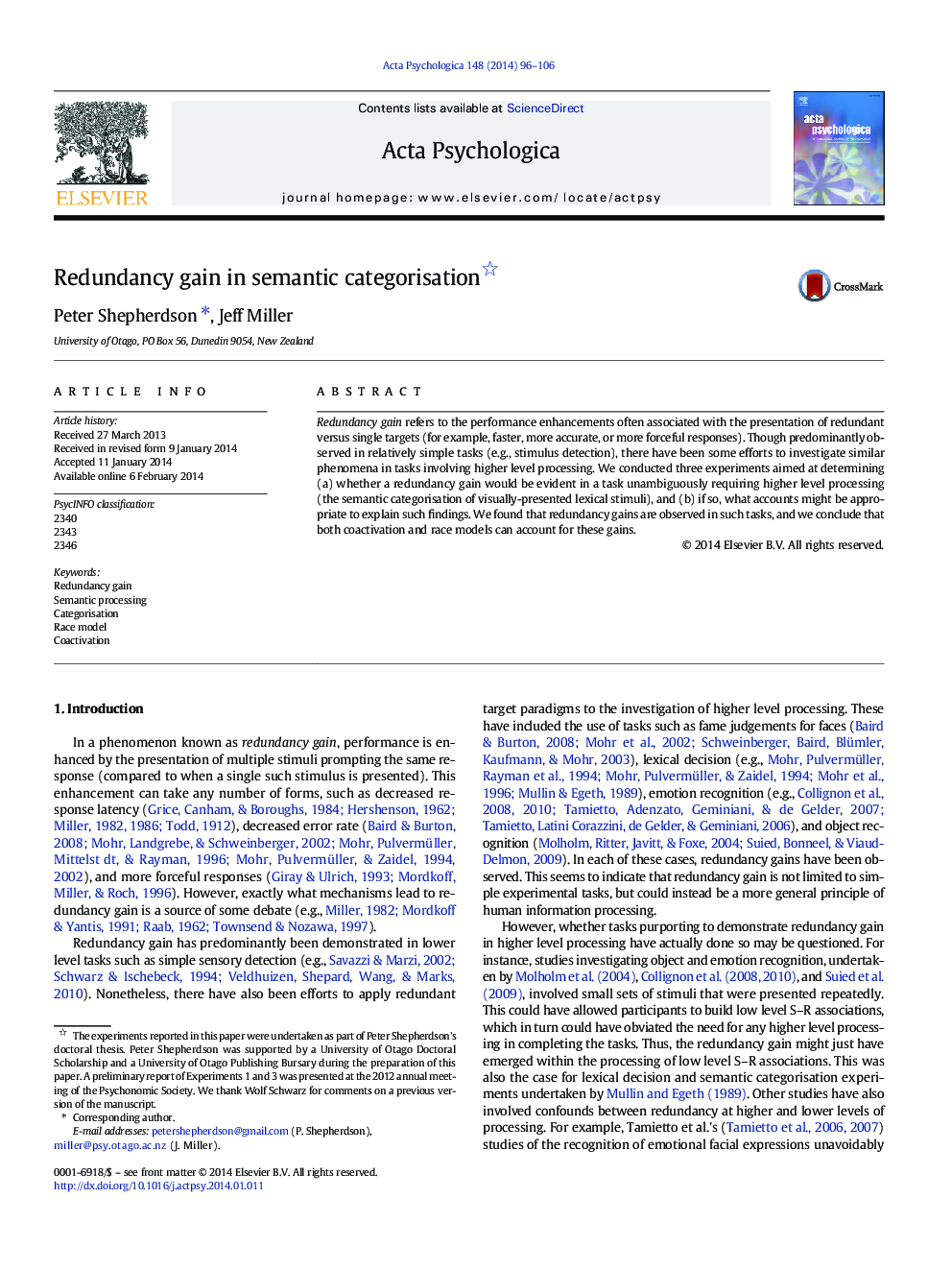| Article ID | Journal | Published Year | Pages | File Type |
|---|---|---|---|---|
| 7277783 | Acta Psychologica | 2014 | 11 Pages |
Abstract
Redundancy gain refers to the performance enhancements often associated with the presentation of redundant versus single targets (for example, faster, more accurate, or more forceful responses). Though predominantly observed in relatively simple tasks (e.g., stimulus detection), there have been some efforts to investigate similar phenomena in tasks involving higher level processing. We conducted three experiments aimed at determining (a) whether a redundancy gain would be evident in a task unambiguously requiring higher level processing (the semantic categorisation of visually-presented lexical stimuli), and (b) if so, what accounts might be appropriate to explain such findings. We found that redundancy gains are observed in such tasks, and we conclude that both coactivation and race models can account for these gains.
Related Topics
Life Sciences
Neuroscience
Cognitive Neuroscience
Authors
Peter Shepherdson, Jeff Miller,
